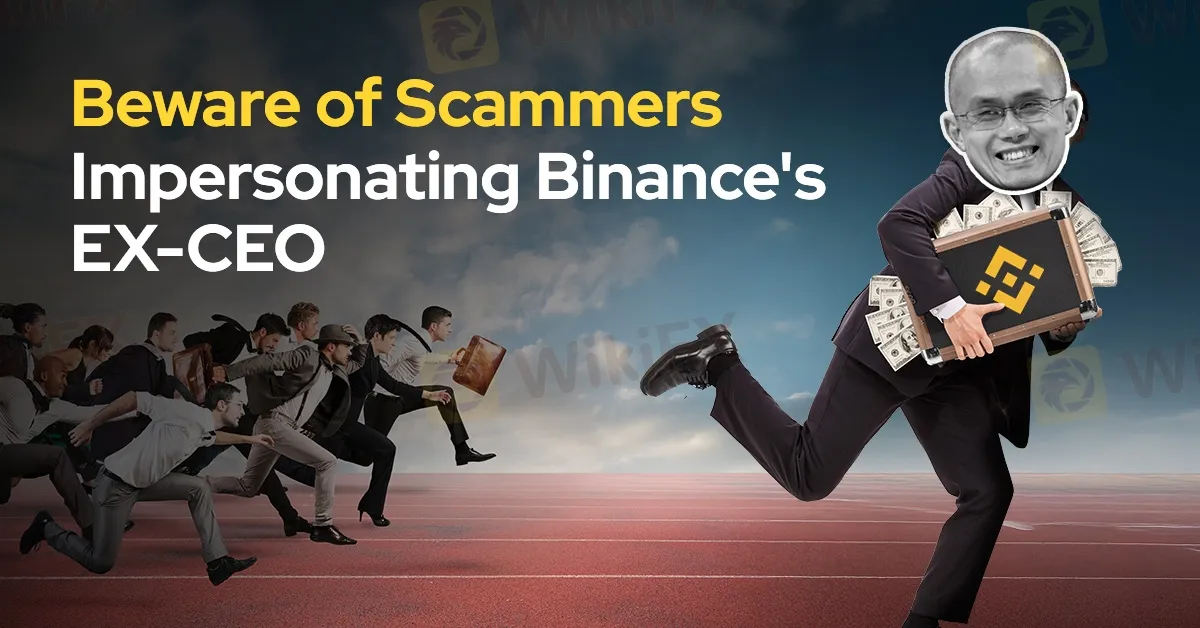Beware of Scammers Impersonating Binance's EX-CEO
Abstract:Changpeng Zhao, co-founder and former CEO of Binance, has once again voiced concerns over a growing issue of himself on Elon Musk's social media platform, X (formerly Twitter)..

Changpeng Zhao, co-founder and former CEO of Binance, has once again voiced concerns over a growing issue on Elon Musk's social media platform, X (formerly Twitter). Fake accounts impersonating Zhao have proliferated on the platform, leading him to issue a public warning to the crypto community. He stressed that his official account is @cz_binance and any others are likely scams. This alert follows a broader rise in deepfake scams that use Zhaos likeness to promote fraudulent tokens across various platforms.

Zhao‘s frustration with X comes as he continues to push for more effective action against these fraudulent activities. He called for the platform to take greater steps in eliminating fake accounts and protecting users, encouraging his followers to report any impersonators they come across. This is not Zhao’s first encounter with impersonation scams. Just a week earlier, he warned about deepfake videos circulating online, falsely showing him promoting different cryptocurrencies. In response to a concerned follower, Zhao clarified that he had never endorsed the coins featured in the videos.

The surge in digital scams using fake identities and deepfake technology is not limited to Zhao. Ripple CEO Brad Garlinghouse and other high-profile figures in the crypto industry have also been targeted, while celebrities such as Donald Trump and Taylor Swift have similarly fallen victim to these AI-generated fraud schemes. Deepfakes, which use artificial intelligence to create highly realistic videos mimicking real people, have emerged as a significant threat on social media platforms.
In response to these growing concerns, law enforcement agencies have also taken action. On August 1, 2024, the FBI issued a warning about scammers impersonating employees of cryptocurrency exchanges. These criminals often contact their targets via calls and messages, pretending to be representatives of legitimate crypto companies, and steal funds once they gain access to victims financial information.
Elon Musk, who purchased X in 2022, has made several promises to combat the platforms bot problem. He pledged to “defeat the spam bots or die trying” and introduced X Premium (formerly Twitter Blue), a subscription-based model intended to reduce the number of fake accounts and bots. However, despite these measures, critics argue that scammers are still finding ways to bypass the paywall, continuing to operate on the platform. Recent research from Clemson University revealed that X continues to host a substantial number of AI-powered accounts posing as real users. These accounts have been involved in political propaganda, with many promoting Republican candidates in the U.S.

Read more

Cryptocurrency Money Launderer Sentenced to Over 10 Years for Laundering $20 Million in Criminal Fun
An Indian national exposed laundering $20M via cryptocurrency and Hawala networks, revealing intricate money laundering techniques.

$TRUMP Token Soars: A New Era for Trump and Cryptocurrency?
Donald Trump has taken an unexpected step into the cryptocurrency market ahead of his January 20 inauguration by launching a memecoin named $TRUMP. The announcement sparked significant speculation and trading activity, with the coin’s value skyrocketing within hours of its debut.

Crypto.com’s Dual Front Battle: European Progress and U.S. Regulation
Crypto.com has received conditional approval to operate under the European Union’s Markets in Crypto-Assets (MiCA) framework. Once fully licensed, this will enable the company to serve customers throughout the EU under a standardised set of rules.

Boerse Stuttgart Digital Secures EU-Wide MiCAR Crypto License
Boerse Stuttgart Digital secures Germany’s first MiCA license, enabling EU-wide operations and expanding its digital asset services.
WikiFX Broker
Latest News
Will Gold Prices Continue to Rise Due to Trump’s Tariffs?
Miami Firm Owner Pleads Guilty to $6M Ponzi Scheme Fraud
NBI Cebu Arrests Forex Trader for Illegal Investment Solicitation
PU Prime's "Feather Your Trades" Contest! Begin
eToro Files for IPO with $5 Billion Valuation on NASDAQ
Is FizmoFX a Scam? Fraud and Account Suspension of Traders
IG Japan Extends US Stock CFD Trading Hours in 2025
ALERT! Warning against Livaxxen
Which Zodiac Sign Makes the Best Trader?
BOJ to Announce Policy Decision This Week, Market Bets on a Rate Hike
Rate Calc

